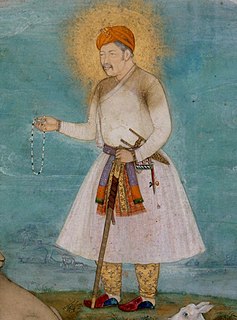A Quote by Johannes Tauler
He who desires to become a spiritual man must not be ever taking note of others, and above all of their sins, lest he fall into wrath and bitterness, and a judging spirit towards his neighbours.
Related Quotes
The spiritual man habitually makes eternity-judgments instead of time-judgments. By faith he rises above the tug of earth and the flow of time and learns to think and feel as one who has already left the world and gone to join the innumerable company of angels and the general assembly and Church of the First-born which are written in heaven. Such a man would rather be useful than famous and would rather serve than be served. And all this must be by the operation of the Holy Spirit within him. No man can become spiritual by himself. Only the free Spirit can make a man spiritual.
To judge sins is the business of one who is sinless, but who is sinless except God? Who ever thinks about the multitude of his own sins in his heart never wants to make the sins of others a topic of conversation. To judge a man who has gone astray is a sign of pride, and God resists the proud. On the other hand, one who every hour prepares himself to give answer for his own sins will not quickly lift up his head to examine the mistakes of others.
The Scoutmaster guides the boy in the spirit of an older brother... He has simply to be a boy-man, that is: (1) He must have the boy spirit in him: and must be able to place himself in the right plane with his boys as a first step. (2) He must realise the needs, outlooks and desires of the different ages of boy life. (3) He must deal with the individual boy rather than with the mass. (4) He then needs to promote a corporate spirit among his individuals to gain the best results.
Keep the extent of your abilities unknown.The wise man does not allow his knowledge and abilities to be sounded to the bottom, if he desires to be honored at all. He allows you to know them but not to comprehend them. No one must know the extent of his abilities, lest he be disappointed. No one ever has an opportunity of fathoming him entirely. For guesses and doubts about the extent of his talents arouse more veneration than accurate knowledge of them, be they ever so great.
Prayer is the converse of the soul with God. Therein we manifest or express to Him our reverence, and love for His divine perfection, our gratitude for all His mercies, our penitence for our sins, our hope in His forgiving love, our submission to His authority, our confidence in His care, our desires for His favour, and for the providential and spiritual blessings needed for ourselves and others.
This leads us to note down in our psychological chart of the mass-man of today two fundamental traits: the free expansion of his vital desires, and, therefore, of his personality; and his radical ingratitude towards all that has made possible the ease of his existence. These traits together make up the well-known psychology of the spoilt child.
So many sins against the poor cry out to high heaven! One of the most deadly sins is to deprive the laborer of his hire. There is another: to instill in him paltry desires so compulsive that he is willing to sell his liberty and his honor to satisfy them. We are all guilty of concupiscence, but newspapers, radios, television, and battalions of advertising men (woe to that generation!) deliberately stimulate our desires, the satisfaction of which so often means the degradation of the family.






































